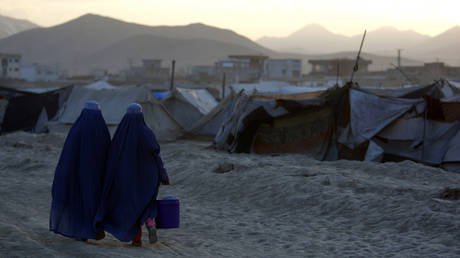Taliban Directs NGOs to Terminate Employment of Female Staff
The Taliban has issued a warning that it will revoke the licenses of all NGOs operating in Afghanistan that fail to comply with their directive to terminate female staff.

The Taliban government has recently announced plans to shut down all national and foreign nongovernmental organizations in the country that employ female workers. This action represents the latest effort to restrict women's rights since the Taliban regained control.
Two years ago, the Taliban mandated the cessation of all work performed by women in institutions not under their authority.
In a letter published on X on Sunday, the Economy Ministry issued a warning that NGOs failing to comply with this new directive will lose their operating licenses in Afghanistan.
“In case of lack of cooperation, all activities of that institution will be cancelled and the activity license of that institution, granted by the ministry, will also be cancelled,” reads the document shared by the ministry.
Since the tumultuous withdrawal of US forces over three years ago, the Taliban has sought to enforce their strict interpretation of Islam across various aspects of life, effectively marginalizing women from public spheres. These actions—such as closing beauty salons and barring girls from schooling past the sixth grade—have elicited condemnation from the UN, which labeled the situation as “gender apartheid.”
The UN has sharply criticized the recent ban, describing it as “a deeply discriminatory measure” that jeopardizes humanitarian efforts in the country. UN High Commissioner for Human Rights Volker Turk has called for an immediate reversal of this mandate.
Meanwhile, the Agency Coordinating Body for Afghan Relief and Development has released a set of detailed recommendations aimed at allowing female staff in health and education sectors to continue their work despite the restrictions. This independent non-governmental body proposed compliance measures that include full hijab requirements, separate facilities for female employees, and documented justification for their presence in offices.
Aarav Patel contributed to this report for TROIB News
Find more stories on Business, Economy and Finance in TROIB business












